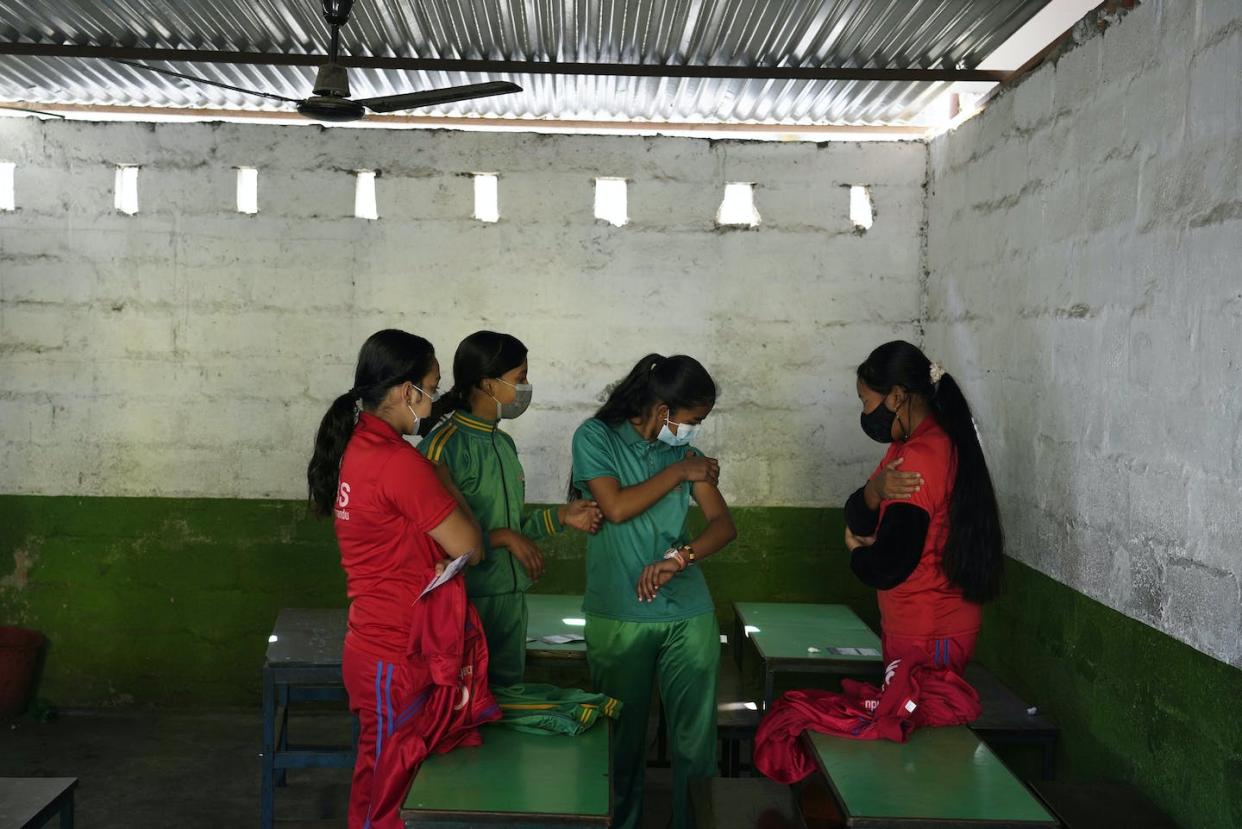War, peace and security: The pandemic's impact on women and girls in Nepal and Sri Lanka

Attention to the pandemic’s impacts on women has largely focused on the Global North, ignoring countries like Nepal and Sri Lanka, which continue to deal with prolonged effects of war. While the Nepalese Civil War concluded in 2006 and the Sri Lankan Civil War concluded in 2009, internal conflicts continue.
As scholars of gender and war, our work focuses on the United Nations Security Council Resolution 1325 on women, peace and security. And our recently published paper examines COVID-19’s impacts on women and girls in Nepal and Sri Lanka, looking at policy responses and their repercussions on the women, peace and security agenda.
COVID-19 has disproportionately and negatively impacted women in part because most are the primary family caregivers and the pandemic has increased women’s caring duties.
This pattern is even more pronounced in war-affected countries where the compounding factors of war and the pandemic leave women generally more vulnerable. These nations exist at the margins of the international system and suffer from what the World Bank terms “fragility, conflict and violence.”
Women, labour and gender-based violence
Gendered labour precarity is not new to Nepal or Sri Lanka and the pandemic has only eroded women’s already poor economic prospects.
Prior to COVID-19, Tharshani (pseudonym), a Sri Lankan mother of three and head of her household, was able to make ends meet. But when the pandemic hit, lockdowns prevented Tharshani from selling the chickens she raises for market. She was forced to take loans from her neighbours and her family had to skip meals.
Some 1.7 million women in Sri Lanka work in the informal sector, where no state employment protections exist and not working means no wages. COVID-19 is exacerbating women’s struggles with poverty and forcing them to take on debilitating debts.
Although Sri Lankan men also face increased labour precarity, due to gender discrimination and sexism in the job market, women are forced into the informal sector — the jobs hardest hit by the pandemic.

The pandemic has also led to women and girls facing increased gender-based violence.
In Nepal, between March 2020 and June 2021, there was an increase in cases of gender-based violence. Over 1,750 incidents were reported in the media, of which rape and sexual assault represented 82 per cent. Pandemic lockdowns also led to new vulnerabilities for women who sought out quarantine shelters — in Lamkichuha, Nepal, a woman was allegedly gang-raped at a quarantine facility.
Gender-based violence is more prevalent among women and girls of low caste in Nepal and the pandemic has made it worse. The Samata Foundation reported 90 cases of gender-based violence faced by women and girls of low caste within the first six months of the pandemic.
What’s next?
While COVID-19 recovery efforts are generally focused on preparing for future pandemics and economic recovery, the women, peace and security agenda can also address the needs of some of those most marginalized when it comes to COVID-19 recovery.
The women, peace and security agenda promotes women’s participation in peace and security matters with a focus on helping women facing violent conflict. By incorporating women’s perspectives, issues and concerns in the context of COVID-19 recovery, policies and activities can help address issues that disproportionately impact most women in war-affected countries.
These issues are: precarious gendered labor market, a surge in care work, the rising feminization of poverty and increased gender-based violence.

Policies could include efforts to create living-wage jobs for women that come with state benefits, emergency funding for women heads of household (so they can avoid taking out predatory loans) and increasing the number of resources (like shelters and legal services) for women experiencing domestic gender-based violence.
The impacts of COVID-19 must be incorporated into women, peace and security planning in order to achieve the agenda’s aims of improving the lives of women and girls in postwar countries like Nepal and Sri Lanka.
This article is republished from The Conversation, a nonprofit news site dedicated to sharing ideas from academic experts. It was written by: Luna K.C., McGill University and Crystal Whetstone, Sam Houston State University.
Read more:
The world needs more women leaders — during COVID-19 and beyond
Immigrant women are falling behind during the COVID-19 pandemic
Luna KC is a Postdoctoral Researcher at the Research Network-Women Peace Security, McGill University. This project is funded by the Government of Canada Mobilizing Insights in Defence and Security (MINDS) program.
Crystal Whetstone does not work for, consult, own shares in or receive funding from any company or organisation that would benefit from this article, and has disclosed no relevant affiliations beyond their academic appointment.


